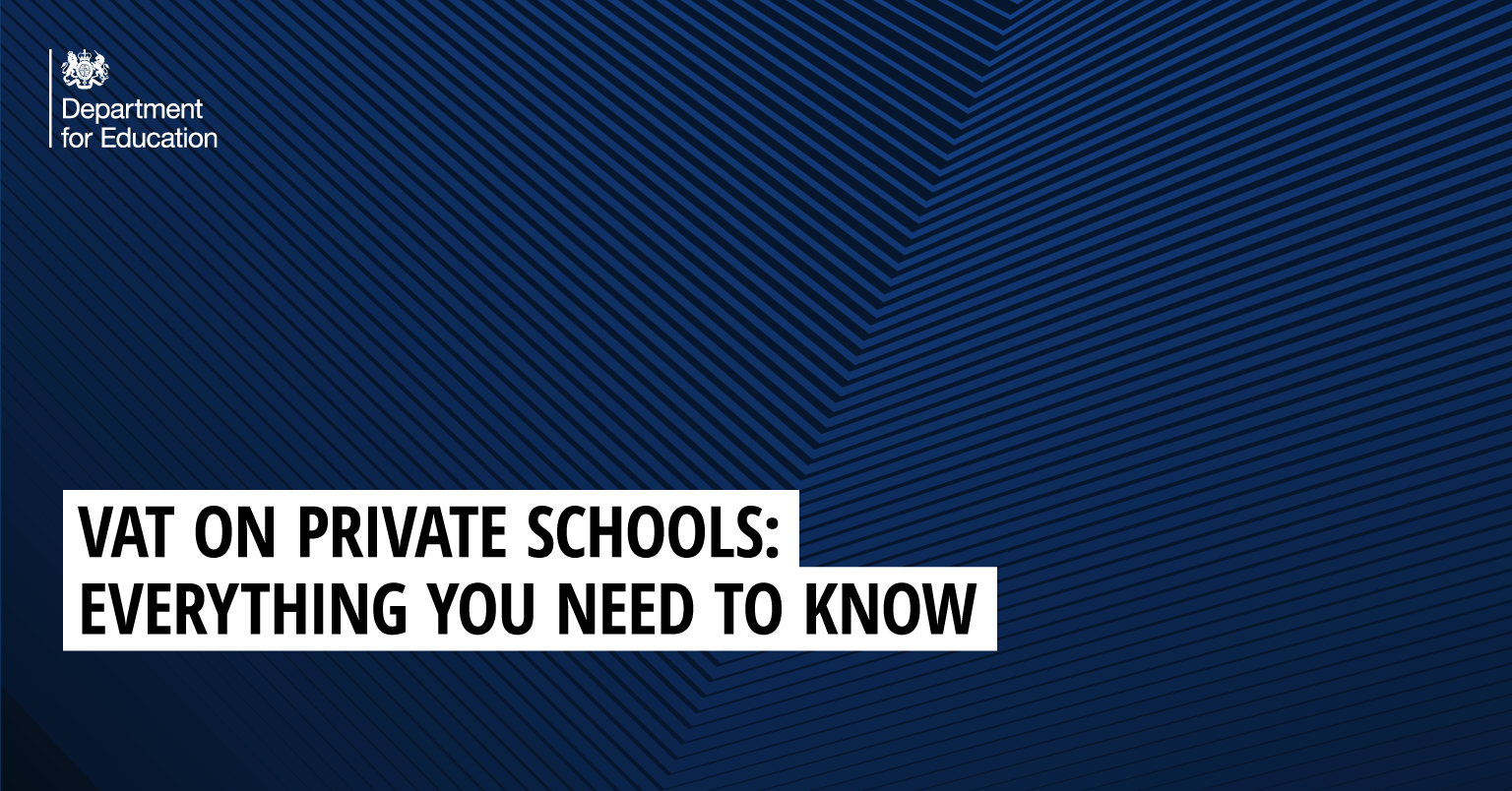
New VAT Rules on Private School Fees
Starting January 1, 2025, all education services provided by private schools will be subject to the standard VAT rate of 20%. This will apply to Tuition fees, Boarding fees and Related services, such as extracurricular activities. According to gov.uk, tax breaks for private schools are ending from the start of 2025 to better invest in state education. It is important to note that this doesn’t mean private school fees will increase by 20%.
Financial Impact on Parents
Parents should prepare for a significant increase in private school fees due to the 20% VAT. However, it’s important to note that schools may be able to reclaim VAT on some expenses, potentially reducing the full 20% increase. If there are discounted fee arrangements, VAT will only apply to the actual amount paid.
Key Considerations for Parents
- Potential Fee Increases: While the new rules could lead to a 20% rise in fees, the exact amount may vary depending on the school’s ability to offset VAT costs.
- Timing of Payments: Fees paid after July 29, 2024, for terms starting in 2025, will be subject to VAT. Paying in advance may avoid this cost, but it’s important to understand the school’s policies.
- Advance Payment Schemes: Some schools offer advance payment plans to lock in fees before the VAT increase. However, HMRC may challenge these arrangements if they consider them tax avoidance, especially if future education services were not clearly defined at the time of payment.
- Partial VAT Exemptions: Some services provided by schools may still be VAT exempt. Parents should request a detailed breakdown of fees and VAT charges to ensure clarity.
- Financial Planning: Given the potential fee increase, parents should factor this into their long-term education budgets.

Broader Implications for Private Schools
This policy shift could have widespread effects on private schools throughout the UK. Smaller schools, in particular, may face financial difficulties, with some possibly closing due to lower enrollment numbers. If families can no longer afford private education, there could be increased pressure on state schools, which would need to absorb these students.
Long-Term Impacts on Private Education
The affordability of private education is likely to become a major concern. Fewer families may be able to send their children to private schools, leading to lower enrollment and potentially causing financial challenges for smaller institutions. This shift could lead to broader changes in the UK education system, as more students transition from private to state schools, adding strain to the public education sector.
Next Steps for Parents
As these changes approach, parents must stay informed and proactively manage the potential impact. Here’s what you should do:
- Monitor Updates: Monitor communications from your child’s school about upcoming fee changes and how they plan to implement the VAT.
- Request Fee Breakdowns: Ask for detailed breakdowns of your child’s school fees, including any VAT charges, to understand how much you’ll pay.
- Plan Financially: Consider the long-term financial implications and adjust your education budget accordingly. The 20% VAT could significantly increase annual costs.
- School Policy Changes: Some schools may alter their offerings or policies in response to the new VAT rules.
Financial Planning for Nigerian Families
Given the significant cost hike, Nigerian parents must reassess their financial plans. Families should prepare for a 14-20% increase in school fees starting in the 2025 academic year. This means budgeting for higher education expenses and factoring in the potential impact of these VAT changes on long-term financial commitments.
To mitigate the impact, staying informed and maintaining open communication with the schools is crucial. Understanding how these changes affect individual fee structures can help Nigerian parents make informed decisions and explore options to manage increased costs effectively.
Consider Alternative Options
Some parents may need to explore more affordable educational alternatives if the increased costs make UK private education unattainable:
-
- Investigating other international education options
- Looking into UK state schools (if eligible)
- Re-evaluating education plans within Nigeria
The introduction of VAT on private school fees marks a major shift in the UK’s education landscape. With expected rising costs, many families may find private education less affordable, leading to broader changes in the sector. Parents can better navigate these upcoming financial challenges by staying informed, planning, and ensuring they are prepared for the new VAT rules starting in 2025.
Understanding VAT on School Fees: Key Takeaways from the 2024 Budget
As education evolves in response to economic challenges and policy shifts, understanding the implications of Value Added Tax (VAT) on school fees has become increasingly important for parents, educators, and administrators alike. The recent 2024 budget has brought forth significant updates that impact how VAT is applied to educational institutions, sparking a need for clarity in this complex area. The Chancellor announced the UK government’s budget for 2025-26 on 30th October 2024.
1. Introduction of VAT on Private School Fees
Starting from April 2025, the government plans to introduce VAT on private school fees, set at the standard rate of 20%. This move aims to level the playing field between private and state schools, as state schools are exempt from VAT.
Funding for schools will rise by £ 2.3 billion next year, with £ 1 billion of that funding being used by the government as it continues to develop plans to transform England’s Special Education Needs and Disabilities (SEND) system and improve outcomes for young people.
2. Financial Impact on Families
The introduction of VAT is expected to substantially increase the cost of private education. Parents of children attending private schools must budget for this additional expense, which could lead to significant financial strain for some families.
To support parents, particularly those from disadvantaged backgrounds, we’re significantly increasing investment in breakfast clubs to over £30million, to help ensure children are ready to learn at the start of the school day, and helping drive improvements to behaviour, attendance and attainment.
3. Use of Funds for Public Education
The government has indicated that the revenue generated from this VAT will be directed towards improving state education. This includes funding for special educational needs (SEN) provisions, a critical area of focus for many families.
Approximately £ 1.3 billion is earmarked to fully fund the pay award for teachers.
4. Concerns from Private Schools
Many private school leaders have expressed concern about VAT’s impact on enrollment and their institutions’ overall viability. They worry that higher fees may deter families from choosing private education, potentially decreasing student numbers.
The Independent Schools Council (ISC) represents more than 1,400 schools in the UK and abroad. It voted in favour of legal action the day after Labour’s budget was confirmed.
5. Impact on Scholarships and Financial Aid
Introducing VAT may also affect scholarships and financial aid offered by private schools. Schools may need to reassess their financial assistance programs to accommodate the new costs, which could lead to fewer opportunities for families seeking support.
6. Additional Education
There is also £ 15 million to begin delivery of 3,000 school-based nurseries. Schools can bid for up to £150,000 to expand existing nurseries or open a new one.
The money will mean 300 new or expanded nurseries open by September 2025.
Additionally, the government is transforming the Apprenticeship Levy into a more flexible Growth and Skills Levy by investing £ 40 million to help deliver new foundations and shorter apprenticeships in key sectors.
